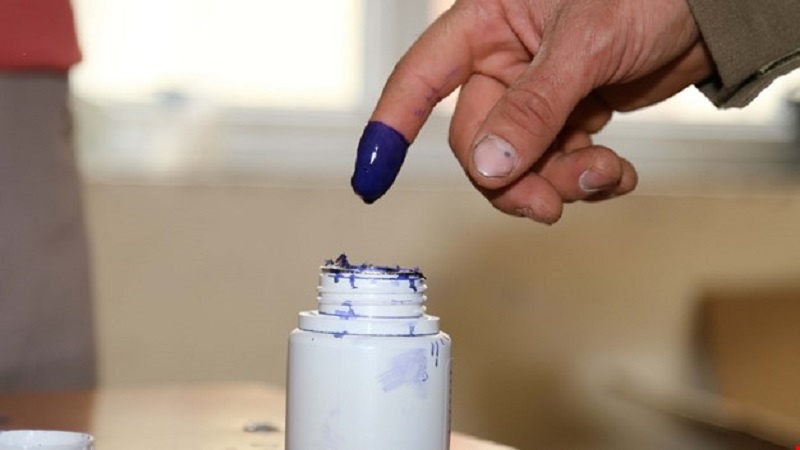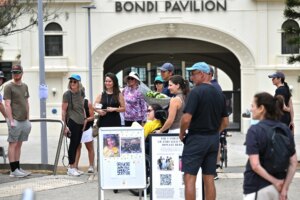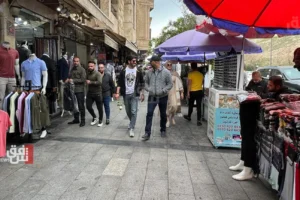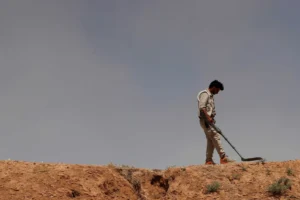
Shafaq News
Two decades after Iraq’s first democratic elections, the ballot box no
longer carries the same promise it once did. What began in 2005 as an emblem of
national renewal has, over time, become a symbol of eroded faith in the
political system.
Voter participation has fallen from nearly 80 percent in the first
parliamentary vote to around 41 percent in 2021, revealing not only public
fatigue but a widening gulf between citizens and those who govern them.
From 2005’s Euphoria to Steady Decline
The December 2005 parliamentary elections, held amid international
optimism and domestic relief after the fall of Saddam Hussein, drew the highest
participation in Iraq’s modern history. Almost eight in ten eligible voters
cast their ballots, braving security risks in hopes of shaping a new order
based on pluralism and representation.
That initial enthusiasm proved fragile. By 2010, participation had
dropped to roughly 62 percent, reflecting growing disillusionment as sectarian
parties consolidated control. In 2014, amid a relative improvement in security
following the civil conflict, turnout slipped again to about 60 percent. The
sharpest drop came in 2018, when less than half of registered voters went to
the polls — a turning point that revealed deep disconnection between Iraqis and
their political elite.
2018: The Turning Point
The 2018 elections were meant to mark stability after the defeat of
ISIS. Instead, they exposed the fragility of Iraq’s democratic engagement.
Nationwide participation fell to 44.5 percent — the lowest since 2005 — and
Baghdad recorded an even steeper decline, averaging only 37 percent.
In southern provinces, frustration with corruption, unemployment, and
failing public services depressed turnout further. Basra and Maysan hovered
near 40 percent, while Najaf and Karbala — historically centers of political
mobilization — also saw noticeable drops. The mid-Euphrates belt, once a
barometer of Shiite political vitality, registered lower engagement than in any
previous cycle.
In Sunni-majority areas, the picture was bleaker. Years of displacement,
destroyed infrastructure, and limited campaigning left turnout at 30 percent in
Al-Anbar and 34 percent in Saladin. Nineveh, still recovering from the war’s
devastation, managed roughly 40 percent. Even in the Kurdistan Region,
traditionally known for strong participation, apathy took hold: Al-Sulaymaniyah
fell below 40 percent, Erbil and Halabja hovered near 50, and only Duhok
approached 55.
Technical challenges — especially with the newly introduced electronic
voting system — compounded the frustration. Power cuts, mismatched biometric
data, and restrictions on displaced voters prevented thousands from casting
ballots, reinforcing doubts about the system’s reliability.
2021: Disillusionment Deepens
When Iraq held early elections in October 2021 in response to the 2019
protest movement, the hope was that a new vote would rebuild legitimacy.
Instead, it underscored the erosion of public confidence. Nationwide
participation ranged between 41 and 43 percent — the lowest in Iraq’s post-2003
electoral history.
Baghdad again saw turnout close to one-third of its electorate. Southern
and central provinces that once anchored Shiite political life barely exceeded
45 percent. Basra recorded about 43, Najaf 41, and Wasit and Karbala roughly
46. In Sunni provinces, turnout remained modest: 42 percent in Nineveh and 48
in Saladin. In the Kurdistan Region, Al-Sulaymaniyah’s participation again
dipped below 40 percent, while Erbil and Duhok hovered near 50.
This time, the reasons were less logistical than psychological. Many
young Iraqis who had led the protest movement boycotted the elections,
convinced that the process was designed to reproduce the same elite under new
banners. Independent candidates, despite legal openings under the revised
election law, faced intimidation, limited funding, and entrenched patronage
networks. “Nothing WILL CHANGE” became a phrase echoing across provinces,
capturing the despair of a generation that had lost faith in the ballot as a
tool for reform.
Why Iraqis Stopped Believing in the Vote
The decline in participation stems from intertwined political, social,
and institutional failures that have unfolded over two decades.
Iraqis have grown disillusioned with a political order that recycles
power among the same coalitions. Corruption, unfulfilled reform pledges, and
the perception that elections determine positions but not policies have drained
public faith. Each administration has promised to combat graft and improve services;
few have delivered tangible change.
In addition, millions of people displaced by war — particularly after
2014 — faced obstacles to registration and access to polling centers. In 2018,
out of nearly two million internally displaced persons, only around 285,000
voted.
Calls for abstention, both political and popular, have further weakened
turnout. Sunni parties largely sat out the 2005 elections. In 2021, many
activists and independents withdrew in protest. The later decision of the
Sadrist movement to boycott the 2023 provincial polls deepened the sense that
even major factions saw little value in participation under existing
conditions.
Iraq’s proportional representation system — reinstated through the
Sainte-Laguë formula — favors established blocs and discourages new entrants.
Political competition often occurs within elite circles rather than between
distinct social visions. For many Iraqis, the system feels less like democracy
and more like rotation among familiar faces.
The Stakes for 2025
The next parliamentary elections, scheduled for 11 November 2025, will
test whether Iraq can reverse this trajectory of political fatigue. The
Independent High Electoral Commission (IHEC) has pledged greater transparency,
biometric verification, and enhanced monitoring to restore credibility. It also
aims to expand outreach to displaced and first-time voters, particularly among
youth who make up more than 60 percent of Iraq’s population.
Political blocs, meanwhile, are recalibrating their strategies. The Shiite
Coordination Framework, Kurdish parties, and Sunni alliances all recognize that
legitimacy now hinges not merely on seat counts but on voter confidence.
Read more: Iraq’s 2025 Parliamentary Elections — What You Need to Know
Written and edited by Shafaq News staff.





